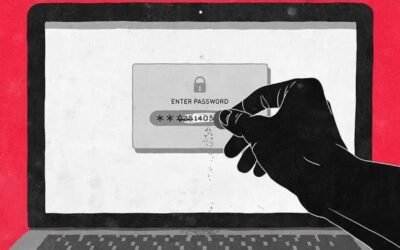An alarming global data breach has exposed the internet credentials of more than 180 million Pakistanis, as reported in a recent advisory by Pakistan’s National Cyber Emergency Response Team (PKCERT).
The evolving landscape of cyber warfare presents a complex and growing threat to Pakistan’s national security, extending beyond external state actors to encompass significant domestic implications from data breaches. Pakistan’s increasing reliance on digital infrastructure, coupled with persistent vulnerabilities, necessitates a critical examination of its preparedness, legal frameworks, and citizen data protection.
Rising Cyber Threats in Pakistan
Pakistan faces a multifaceted cyber warfare landscape, not only from traditional state-sponsored hacking but also from an increasing number of domestic data breaches. Geopolitical tensions, particularly with India, have seen both state-backed and patriotic hacker groups engaged in cyber espionage and website defacements.

While the immediate domestic impact of these “tit-for-tat” activities, like website defacements, might seem limited to inconvenience and reputational damage, the underlying cyber espionage campaigns can lead to significant information theft from government agencies and private firms.
More broadly, Pakistan’s rapid digitalization across all sectors has unfortunately exacerbated its cybersecurity challenges. The country has been identified as one of the most vulnerable globally, with a high incidence of malware encounters. Data breaches are a persistent concern, impacting not just the commercial and financial sectors but also critical government and defense data.
You May Like To Read: Old Media, New Threats: The Disinformation Dilemma
Instances of hacks targeting key institutions like the Federal Board of Revenue (FBR) and the National Database and Registration Authority (NADRA) highlight the severe national security implications of compromised sensitive information. Beyond external threats, insider threats, where employees or trusted individuals misuse their access –also pose significant risks to organizations and government entities within Pakistan.
Legal and Policy Frameworks: Gaps and Challenges
Pakistan has made strides in establishing legal and policy frameworks for cybersecurity, but significant gaps and challenges remain in their implementation and effectiveness. The primary legislation is the Prevention of Electronic Crimes Act (PECA) 2016, which criminalizes various cyber offenses, outlines investigation procedures, and specifies penalties.
Additionally, the National Cybersecurity Policy 2021 provides a broader framework for cyber governance, infrastructure protection, and international collaboration. The Pakistan Telecommunication Authority (PTA) has also formulated a cybersecurity framework under its Critical Telecom Data and Infrastructure Security Regulation (CTDISR).

Source: Aurora.Dawn.
Despite these efforts, the implementation of these policies often lags. There’s a lack of clarity on institutional roles, insufficient funding mechanisms, and limited engagement with the private sector for cybersecurity training and research.
Critics also point to PECA’s limitations, particularly its broad definitions and potential for misuse, raising concerns about balancing national security with digital rights. While PECA does criminalize unauthorized access and transmission of data, its provisions might not be comprehensive enough to address the evolving sophistication of state-sponsored cyber warfare or large-scale data breaches effectively.
Regarding citizen data protection, Pakistan lacks a dedicated, comprehensive general personal data protection law. The Personal Data Protection Bill 2023 has been approved by the Federal Cabinet but is yet to be promulgated into law. In its absence, the Constitution’s Article 14(1) provides a general right to privacy and certain provisions within PECA 2016 offer some protection against unauthorized access to personal data.
However, without a dedicated law, there is no comprehensive framework for data processing, data subject rights, breach notification requirements, or the establishment of an independent data protection authority, leaving citizen data vulnerable. This fragmented approach means that while certain cybercrimes are addressed, the overarching framework for safeguarding citizen data against breaches and misuse, particularly by state actors, remains weak.
National Security and Critical Infrastructure at Risk
The domestic implications of cyber warfare and data breaches for Pakistan’s national security are profound, particularly concerning its critical infrastructure. Pakistan’s increasing dependence on digitized systems for sectors like energy, finance, healthcare, and defense makes it highly vulnerable.
Successful cyberattacks on these vital sectors could lead to widespread disruption, economic instability, and even threaten national sovereignty. Instances of cyberattacks on major banks, resulting in significant financial losses due to card skimming and online frauds, underscore the economic impact.
You May Like To Read: Pakistan’s Response Towards Online Extremism and Terrorist Propaganda
Beyond economic disruption, cyber warfare poses a direct threat to national security by potentially compromising sensitive government and defense data. Attacks like the reported hacking of senior Pakistani officials’ mobile phones via Pegasus malware highlight the sophistication of threats aimed at intelligence gathering and espionage.
The country’s nuclear assets also represent a critical concern, with increasing emphasis on reliable cybersecurity requisitions for digital assets within the nuclear infrastructure. The lack of robust technological infrastructure, efficient strategy execution, and sufficient IT learning further exacerbates Pakistan’s vulnerability to these sophisticated cyber assaults.
Without stronger legal enforcement, enhanced technical capabilities, and a more comprehensive data protection regime, Pakistan remains susceptible to both foreign state-sponsored cyber intrusions and internal data compromises, with direct consequences for its national security.



























